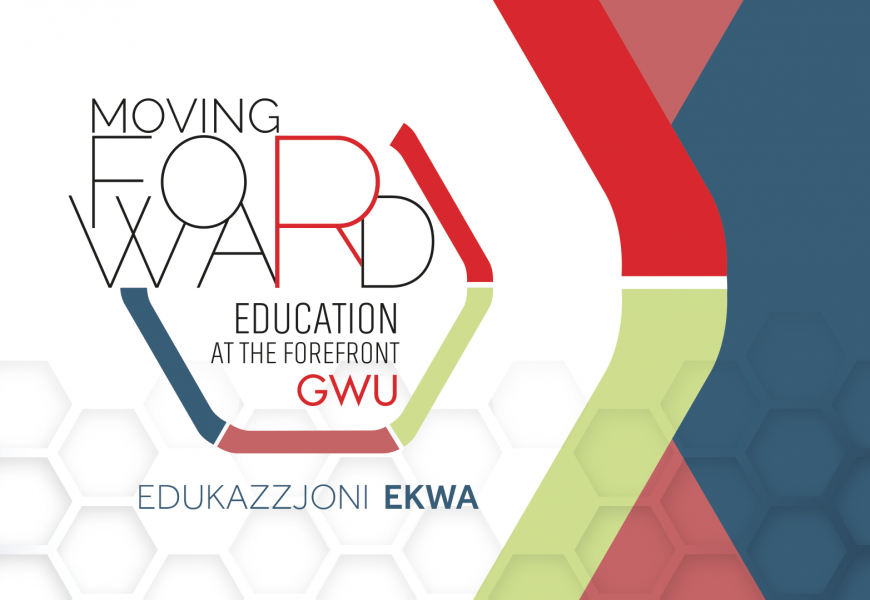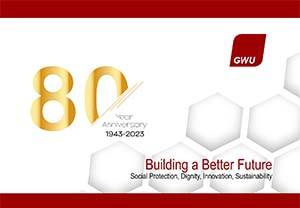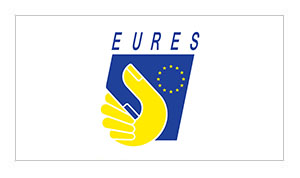After many years of waiting, the GWU organized a conference that had long been demanded and awaited by all educators in Malta and Gozo. In Malta, education has been a part of society since the 16th century, but how fair was it then and how fair is it now?
For a person to achieve their dream, get where they want to go, perform and reach their mirrors, they must be given a fair chance. An opportunity can take many forms, but one of the biggest forms is education. Malta provides free education for all, but this does not mean that all families have access to this resource. This leads to a society with a lack of values and identities. Equal means that everyone has access to education, even if certain people need more help than others. Society must provide this extra help so that everyone has access to it. The fourth goal of United Nations is to ensure inclusive and equitable education and promote lifelong learning opportunities for all.
Paulo Freire, a Brazilian educator and philosopher, says in one of his writings that education is freedom. Every individual has the right to freedom and therefore access to education must be universal and equal for all.
The Hon. Clyde Puli opened the discussion and mentioned that when we talk about equitable education, we are talking about social justice. One must understand that it is not enough to provide an opportunity for education. It has to be a fair chance. Over the years, a lot of progress has been made such as free education for all, MCAST has been opened, we have improved the university, we have introduced a Sports School, we have integrated the vocational aspect, among many other advances. But Hon. Puli criticized that at the moment the system seems to be failing at this point and is struggling to take the next steps when it comes to social justice and reducing discrimination. As it is now, the system is not keeping pace with the just society that everyone talks about. The current education system is not reaching families who are in the lower economic strata of society. We are currently leaving a portion of our society behind. It is our duty to change the current education system so that it is equally inclusive of all. “The pillar is the teachers, if we don’t invest more in the teachers, if we don’t see how to really upgrade this profession, if we don’t see how to attract the best people and with the best selection, the system cannot succeed. “
Prof. Carmel Borg places great emphasis on the wisdom of educational equity, i.e., the knowledge that education is the basic right of all. When students leave the education system without basic skills, we can say that everyone who is part of the education system has failed those very students. We cannot focus on equitable education if we do not give individual attention to each student. Borg adds that there has been no progress in the number of children with low skills in all subjects over the past decade. “Children who don’t know if they have food to eat at night, if they can sleep under a decent roof, will have little education.”
Another speaker during the conference was Mario Mallia, who focused on compulsory education and social justice. “Our top priority was social justice, which doesn’t get where we want to go, even if it affects us personally, aside from disappointment with the general system.” Weaknesses in the education system have long been known, but the pandemic has exacerbated them. Non-contact education is very difficult. Those not actively involved in education cannot imagine the impact the pandemic will have on education, students and tomorrow’s society. Mallia was referring to the point mentioned by Prof Carmel Borg where statistics show that female students can keep up with boys in grades in all subjects, but when these individuals enter the workforce, they find that the decisions are mainly made by men due to the male dominated society.
Dr. Anna Baldacchino focused on the youngest citizens of society who will be the future of our islands tomorrow, children up to age 3. Over the years, these children have become a part of the community. Childcare centres have been opened to help the parents or guardians of the children so they can go to work to improve their standard of living and that of their families, but why don’t those who don’t work have access to these same centers? Why don’t they give those who are not working the access and opportunity to use these centres to further invest in themselves, to improve personal education, which is ultimately an investment for the country? Baldacchino stresses the point that it is rare to find male staff in childcare centres. Here in Malta, this role is meant for the female gender. We live in a society where there are many single parents. Children need both the figure of a woman and a man. Children finding male caregivers in childcare centres who give them love is very important for their upbringing. Baldacchino concludes her speech by saying that the ministries and Policy Makers do not consider early childhood as part of the rest of education because they are not valued like the rest of the educators, they do not have the same rights and conditions and they are not considered professionals.
Dr Charmaine Bonello added to Baldacchino’s theme, stressing the importance of early years educators being professionals and experts in their field, because by the age of seven the mind is at its best. But, unfortunately, here in Malta we have the mentality that these teachers are babysitters. There is a lot of research that shows that children learn through play, learn the critical and free sense that leads them to be active citizens in the community during this childhood period. We need to come together and build a competent system. We give teachers, parents, students and school administrators a voice and look forward together. “Fair and quality early education is the right of every child.”
Prof. James Calleja, like all the other speakers, thanked GWU for giving him and other professionals like him in the field of education a chance to make education in Malta and Gozo a fair education, not with words but with the facts. Calleja says that nowadays we are not only talking about vocational education but also professional education. Because of developments in the world of work, the wisdom of the hand has become very important, but the wisdom of the mind complements it. “Professional education doesn’t have the visibility and appreciation that one would expect, given the great developments in the field.” We are actively engaging with the SME Chamber and the Employers’ Federation to better understand what skills industry is looking for, to better understand what we should be teaching our students. Teachers need to be present in the world of work and understand what it requires.
Dr. Glorianne Borg Axisa agrees perfectly with what Prof. Borg said. Just education should include personal attention, that this can only happen with the involvement of parents in the education of their children. Unfortunately, the message of what the role of parents should be is unclear. Schools hold parent meetings in the morning when nowadays the majority of parents both work. There is a lack of access for parents to be present. Dr Borg Axisa is the thought leader of the Maltese Association of Parents of State Students (MAPSSS)
Kendrick Bondin, the spokesperson for this roundtable, emphasised that the GWU takes a holistic view of education because students will be the workers of the future in our society tomorrow. Educators are workers in our society and should be valued as much as all other educators. Parents are workers too, so we can no longer divide this system into boxes, but must look at it as one chain. The children of all workers must be valued equally today before tomorrow so that we can begin to see change, reduce discrimination, and move closer to a just society.

Dr Emmanuel Mifsud says that this round of talks addressed the difficulties faced by today’s professionals. Problems he had read about 30 years ago when he was a student. The system is preventing a certain student from thriving. What are we waiting for, a society that claims to be equal, to take the necessary steps to ensure that everyone has the resources they need to get an education that is right for everyone? “If we really have the perspective of sending kids to daycare and calling educators babysitters, we’ve lost the direction of what education should be.” Equality means treating everyone the same, but equity requires that we help those who are poor or disadvantaged more.
Prof Peter Mayo opened the second round of talks and immediately mentioned that education is a human right. We have a system that always points the finger at the incompetent, but resources are often the problem. Unions have a very important role to play in this regard because they must always fight for the right to education, not education to get a job, but education more broadly. When it comes to education, we have to keep in mind the protection of citizens and what needs to be done in society and in the community.
Alex Farrugia focuses on students leaving compulsory school without basic skills and the ever-changing workplace. Farrugia believes that foreigners are new Maltese and therefore their contribution to society is important and they should have access to our education because they will find themselves in our community tomorrow. “Their structure should merge with our structure.” As a society, we need to be sure that our education reaches them.
Prof. Carmen Sammut stressed the importance of the university promoting inclusion so that society becomes more inclusive. Sammut has worked to ensure that older citizens have a chance at education later in life. In addition, Profs Carmen has campaigned for foreign and refugee people to be admitted to the courses they want. For education to be equitable, it must be inclusive and accessible to all.
Dr.Kurt Borg comes from the philosophical head and believes that every subject and process must not be considered only in the abstract, but must be analysed in practice. “Education is a holistic activity.” Lifelong education is a human right. Inequality in education is more closely related to social inequalities. The university has the resources necessary to lead the country in education and determine which direction it should go.
Danielle Attard Portughes mentioned several challenges that Reggie Miller Foundation educators face. The process of accrediting a course is very lengthy, which hinders offering classes to those who need the most advancement in their work and personal lives. Attard Portughes added that providing access is not enough. In her career, she has met many young citizens without basic language skills. Parents’ education is very important because they are the pillars in their children’ s education along with teachers.
Josef Bugeja the GWU General Secretary closed the conference by saying that the GWU has always believed that education is the best investment it can give to society. “When you talk about education, you’re talking about social justice, social mobility and access to education throughout life.” Social mobility is not just in the workplace, but an increase in a person’s wisdom in the way they think and analyse holistically. Lifelong learning nurtures individuals and helps them reach their potential. The GWU believes that it should be present in the design and implementation of a national policy for equitable education that is accessible to all, including retirees.
The GWU invited Education Minister Hon Justyne Caruana but unfortunately was unable to attend due to developments in the Covid 19 pandemic.







